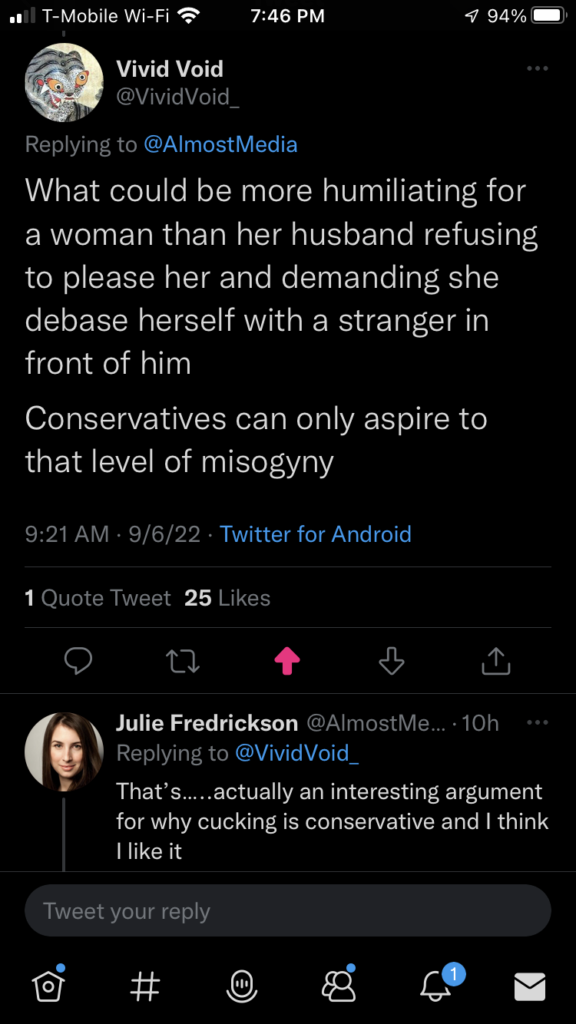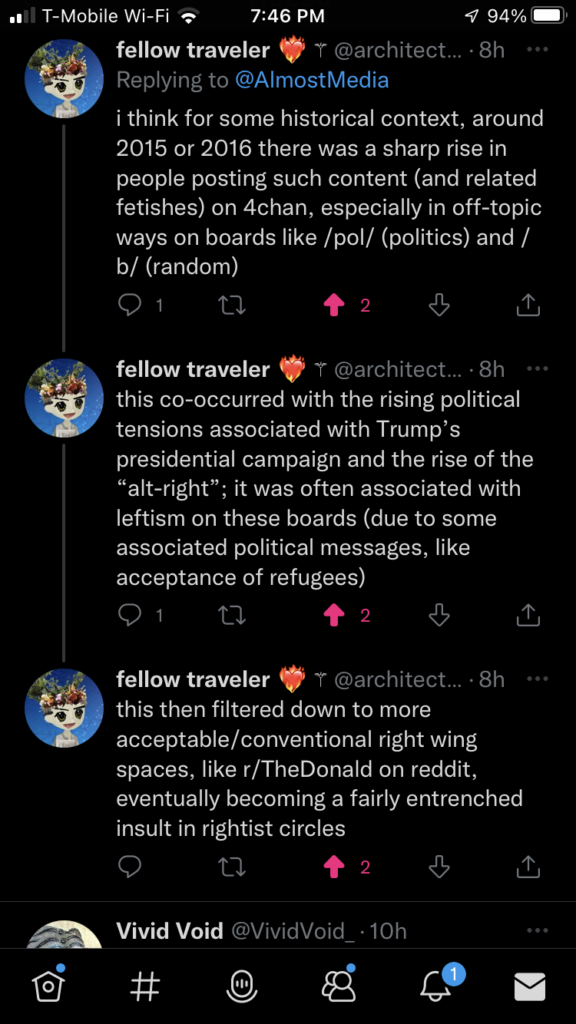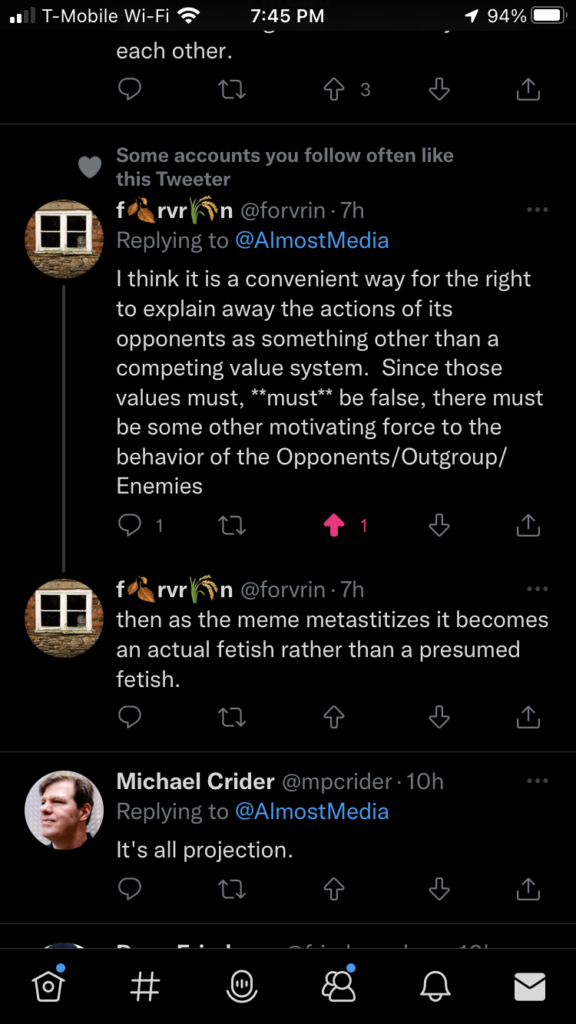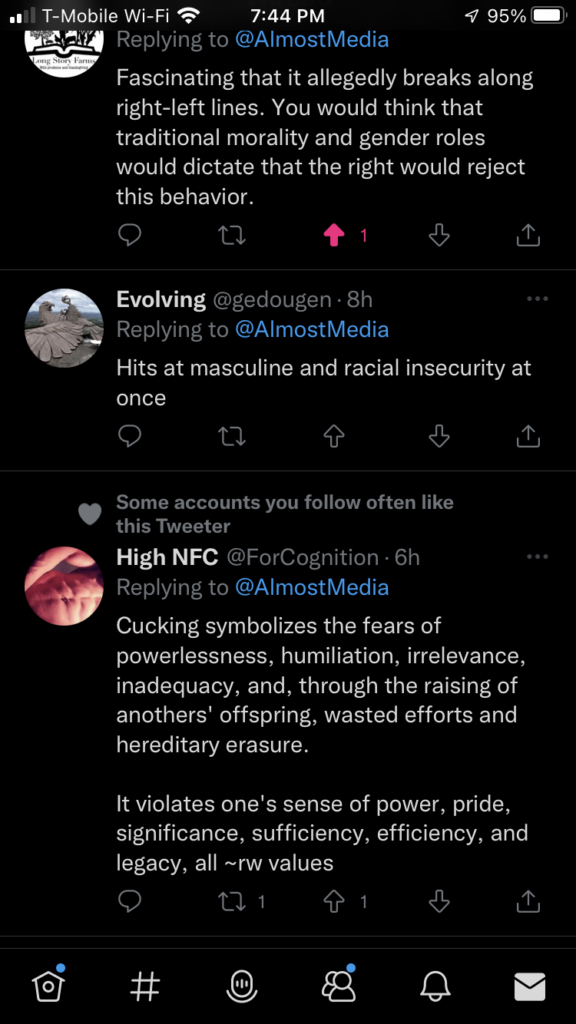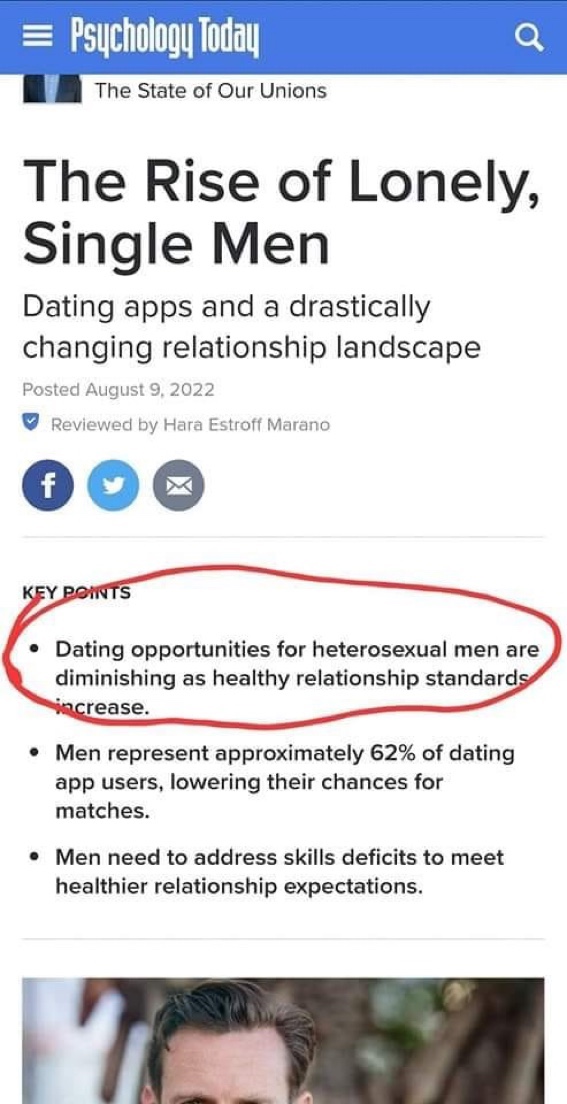As much as I love to joke about getting cancelled on Twitter, I’ve never actually worried about getting dinged. I resisted getting a Blue Check and otherwise pursuing the trappings of being a power user as I was confident that my real world connections would overcome any algorithmic nonsense.
Digital power still resides on a firmament of real world power. I figured I know the right people in real life at Twitter, so short of me encouraging a coup while also being the President of the United States of America, I was pretty safe in maintaining control of my account. This was perhaps a bit naive and I knew it.
The algorithms do in fact come for us all. I got an unprompted warning today that a user on my account (I’m the only user but whatever) had been deemed to be using inappropriate language.
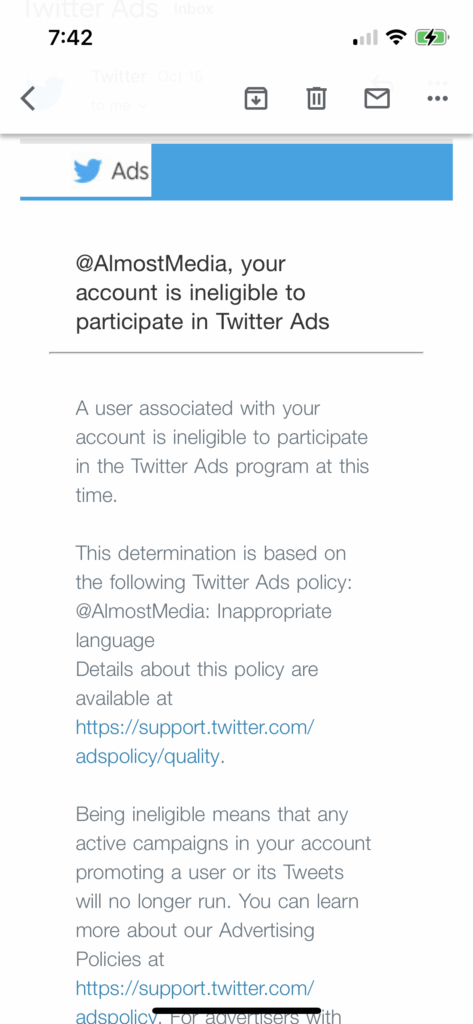
At some point I had the power to run promoted posts, otherwise known as advertisements, but because I have angered the language police at Twitter I am now no longer allowed to pay to promote my own speech. I guess I overrode the “are you sure you want to tweet this most users don’t use this speech” warning one too many times.
I swear more than average for a woman but probably a lot less than average for someone in finance. My account is notably a shitposter account. I remain fascinated by social status and access of all kinds, and shitposting remains of the higher status activities in social media culture as it demonstrates you need not be censored by social mores or common decency. Except apparently I can be.
You can get worked up about whether this infringes on my speech as I can say anything I like but now I’m no longer able to pursue any paid reach. This is the popular theory that everyone is entitled to free speech but not free reach. Or I guess in my case paid reach.
To be honest I had no intention of buying any paid reach advertising on Twitter. The folks I care about generally seem to get my Tweets and I’ve got no sense I’ve been shadow banned. Well, ok now I am worried but I wasn’t before this goofy warning.
To me this feels like a reminder that Twitter just doesn’t give a fuck about its power users. I am a well networked and well liked (or well hated) account with powerful followers in the core demographics that matter on Twitter.
I sit inside a nexus of media, finance and Silicon Valley personalities that care a lot about the platform even as the platform mostly doesn’t give a shit about us. Which is arguably why we’ve all spent six months giving a shit about Elon Musk buying Twitter. When a power user gets banned from advertising producers it’s not really a problem for the user, it’s a problem for the ad products team who is fucking up making money. You know, their job.

